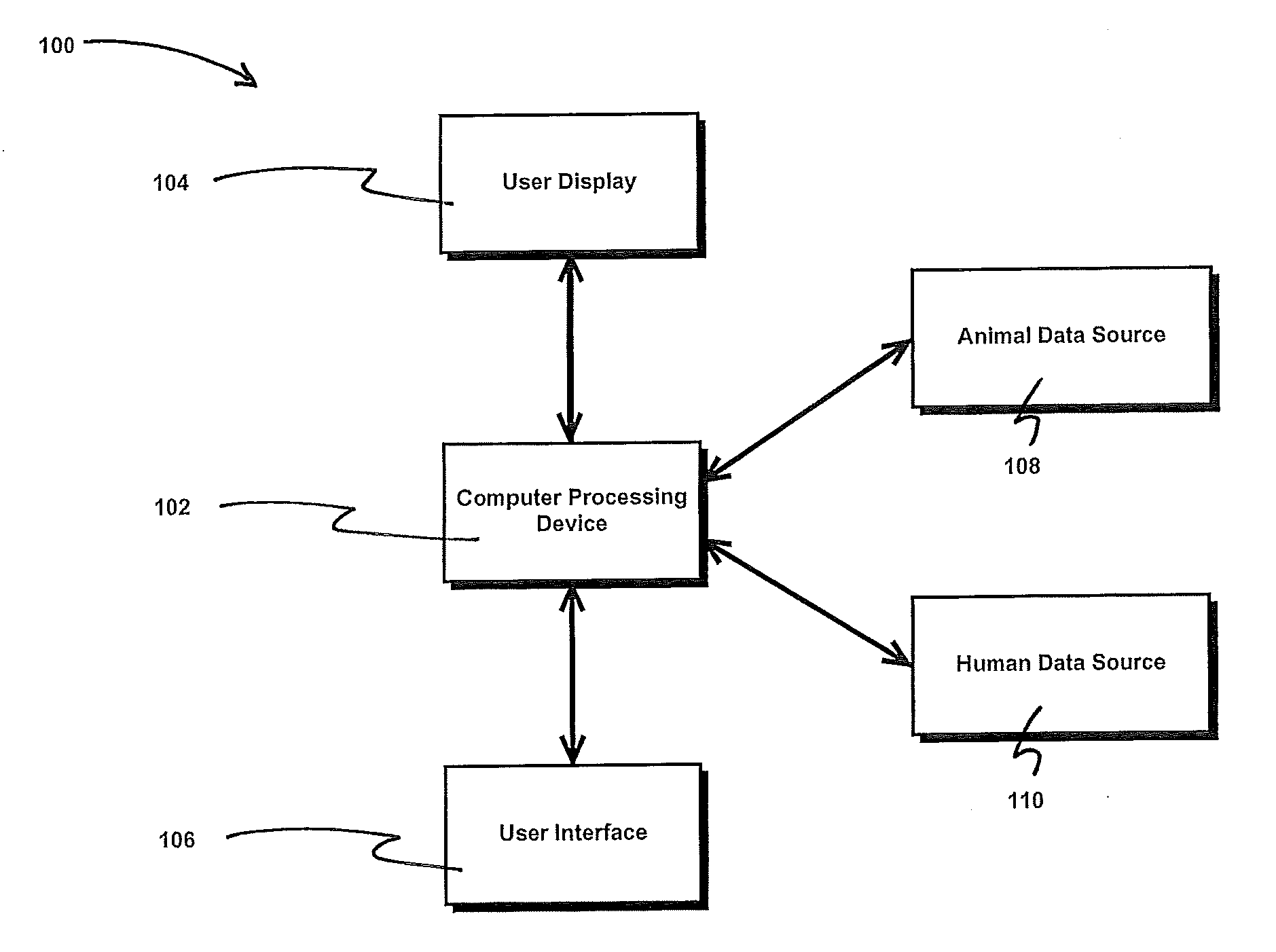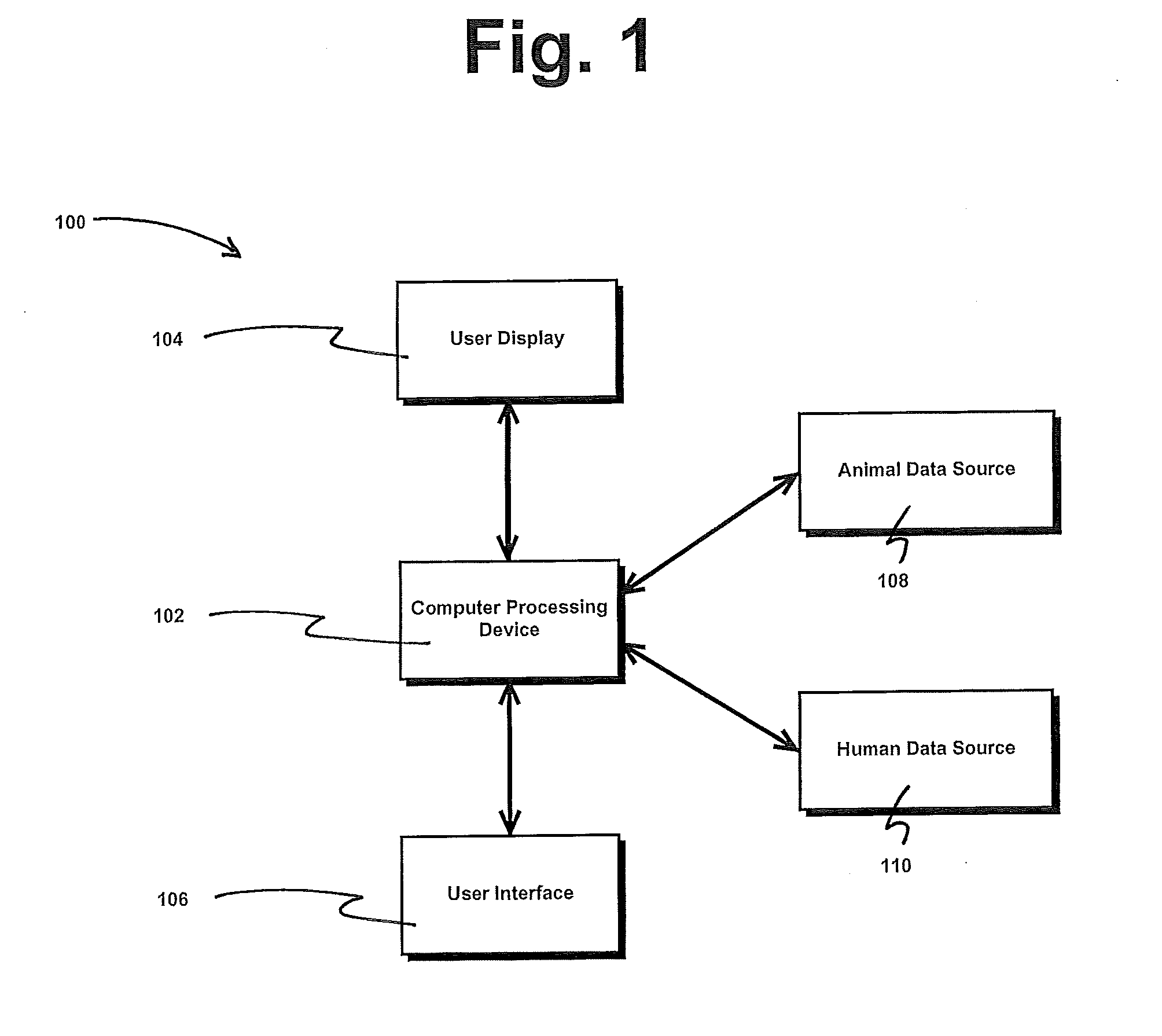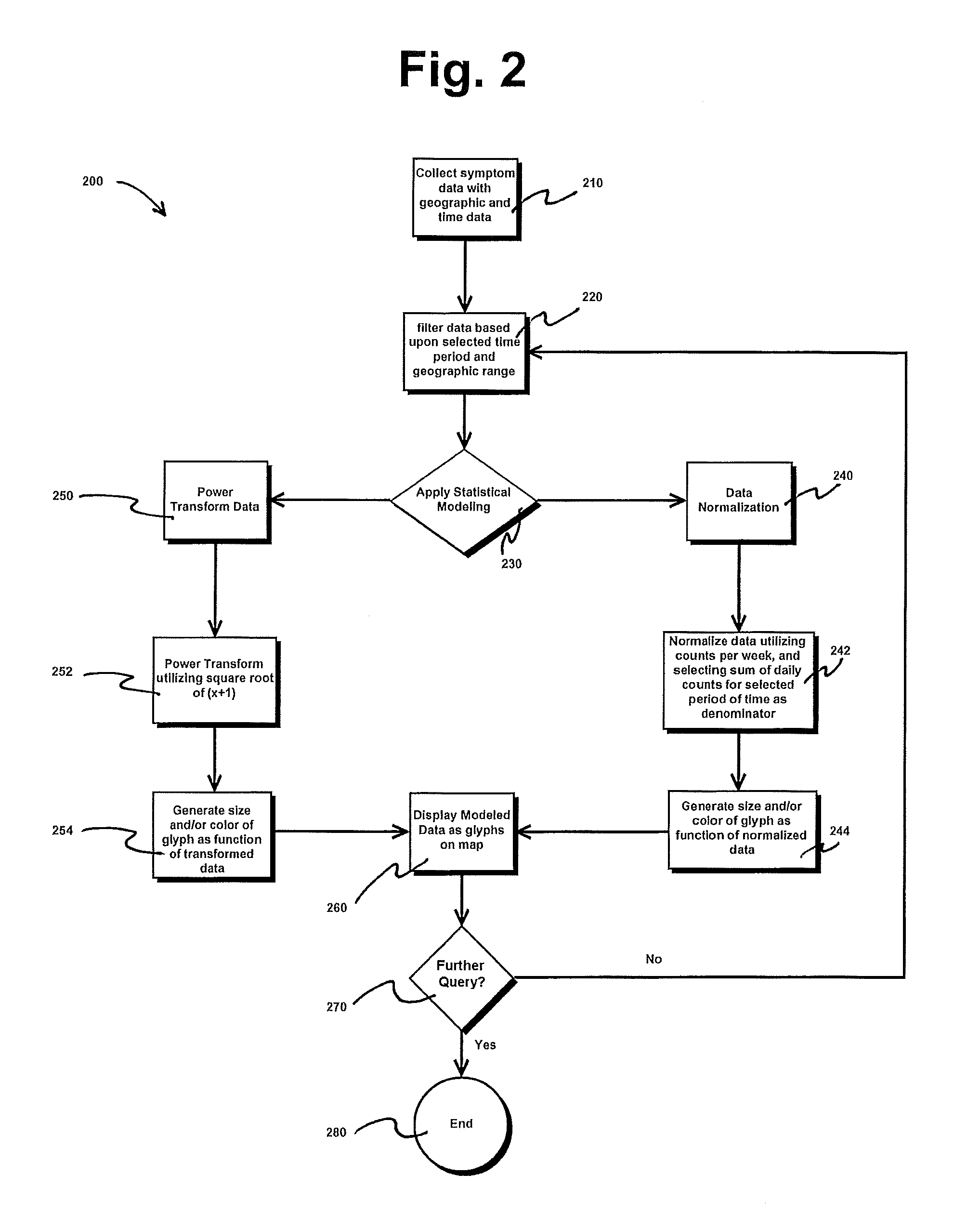Animal symptom visual analytics
a visual analytics and animal symptom technology, applied in the field of visual analytics, can solve the problems of affecting the health of animals and humans, affecting the accuracy of public health surveillance data, and unable to achieve high true positive rate (precision) and low false positive rate (recall)
- Summary
- Abstract
- Description
- Claims
- Application Information
AI Technical Summary
Benefits of technology
Problems solved by technology
Method used
Image
Examples
example 1
[0037]According to at least one exemplary embodiment, a visual analytics system utilizes both data-management and statistical modeling embodiments discussed above. For instance, an initial direct access query may be made to a database is made, and human hospitals, veterinary hospitals, and individual animal locations are displayed on an interactive map such as that shown in FIG. 4. As shown in FIG. 4, at least one exemplary embodiment includes a visual display of a the geo spatial rendition of temporal data 400 for a selected syndrome or symptom displaying generated glyphs signifying normalized or power transformed data of both veterinary hospital and emergency room data.
[0038]In particular, in FIG. 4, veterinary hospitals 410 are depicted by a “V”, cats are depicted by a triangle (not shown), dogs are depicted by circles (not shown), and emergency rooms 420 are depicted by crosses. According to at least one exemplary embodiment, for a selected syndrome, the size and color of the vi...
example 2
[0040]According to at least one exemplary embodiment, a case study of seasonal influenza in both humans and animals was studies utilizing at least one of the embodiments discussed above. By way of nonlimiting example, one or more databases accumulating symptom data from multiple emergency rooms within the Indianapolis metropolitan area, and one or more databases accumulating animal symptom data from multiple Banfield Pet Hospitals within the Indianapolis metropolitan area were utilized to accumulate respiratory syndromes reported in humans, dogs, and cats. FIG. 4a displays the temporally varying window centered over the Indianapolis metropolitan area relating to the relevant data for humans and canines during a multi-year period from October, 2004 through April, 2006. As will be appreciated, STL analysis was further utilized to determine if correlations between dog respiratory syndromes and human respiratory syndromes exist. Through the use of at least one embodiment outlined above,...
example 3
[0041]In yet another nonlimiting exemplary embodiment, the effects of industrial wastewater release was studied through companion animal surveillance. In particular, three syndromes were identified as being potential indicators of adverse effects due to industrial wastewater release: eye inflammation, respiratory symptoms, and gastrointestinal symptoms. A geographical area was defined within an approximately 20 mile radius of a known spill, and companion animal data reported from Banfield Pet Hospitals was analyzed during a temporal range before and after the spill. Due to data sparsity related to eye inflammation reports, a bootstrapping analysis as described above was performed upon identifying a relevant time and geographic area. The results of the bootstrapping analysis are shown in Table 1, and indicate that eye-inflammation in dogs was significant near the wastewater release during the time period of interest, allowing health officials to predetermine potential adverse effects...
PUM
 Login to View More
Login to View More Abstract
Description
Claims
Application Information
 Login to View More
Login to View More - R&D
- Intellectual Property
- Life Sciences
- Materials
- Tech Scout
- Unparalleled Data Quality
- Higher Quality Content
- 60% Fewer Hallucinations
Browse by: Latest US Patents, China's latest patents, Technical Efficacy Thesaurus, Application Domain, Technology Topic, Popular Technical Reports.
© 2025 PatSnap. All rights reserved.Legal|Privacy policy|Modern Slavery Act Transparency Statement|Sitemap|About US| Contact US: help@patsnap.com



